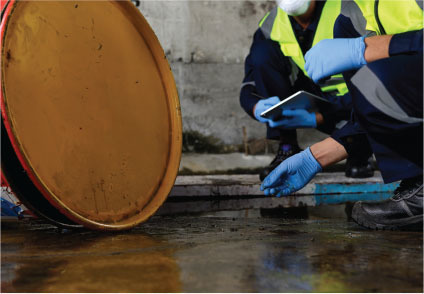January/February 2020
On Ethics: You Be the Judge
Ethics Crash Course
Situation
Nick Otto is a professional engineer working as a consultant to an automobile manufacturer that is considering the development of a driverless/autonomous vehicle operating system. Otto is assigned to an engineering risk assessment team whose members are asked to make a recommendation relating to situations that could arise during the operation of driverless/autonomous vehicles. The following scenario is among the situations that the engineering risk assessment team is considering: In the event of an unavoidable crash, does the vehicle’s system choose the outcome that will likely result in the greatest potential for safety for the vehicle’s passengers? Or does the vehicle’s software system instead choose an option in which the least amount of potential harm is done to any of those involved in an accident, such as having the car crash into a stationary object, such as a telephone pole, with the probability of causing some passengers serious but nonlife-threatening injuries instead of striking and potentially causing a fatal injury to a pedestrian, cyclist, or motorcycle rider?
What Do You Think?
What are Otto’s ethical obligations?
What the Board of Ethical Review Said
Over the years, the NSPE Board of Ethical Review has sought to examine and address emerging engineering issues and their ethical implications and consequences. New engineering breakthroughs frequently introduce different ways of thinking about engineering ethics.
Although the facts in this case are somewhat different than those in an earlier related case (Case 96-4), the Board of Ethical Review believes that several points discussed in the previous case are pertinent to the case at hand. New technologies often introduce new uncertainties and sometimes significant risk. A professional engineer’s overriding ethical responsibility is to hold paramount the safety, health, and welfare of the public.
In BER Case 96-4, Engineer A’s ethical concerns were not related directly to the safety of the software he was testing, but instead to the availability of a new draft safety testing standard that might require additional scrutiny of the software. According to the Board of Ethical Review, Engineer A’s ethical obligations in Case 96-4 involved balancing a variety of ethical and other business considerations and making a recommendation based solely on technical findings (and not business considerations) to permit the company to make an informed decision about the need for additional testing in furtherance of the public health, safety, and welfare. Implicit in Case 96-4 is the notion that in seeking to fulfill one’s ethical obligations, engineers should strive to do no harm in the performance of their professional services.
Conclusion
Otto has a responsibility to fully and actively participate as a member of the engineering risk management team. He should clearly and unambiguously express any and all concerns he has regarding the safety of the proposed autonomous vehicle operation system, and explore additional potential technical options that could mitigate the risks identified in the proposed system. In light of the fact that engineers should strive to do no harm in the performance of their professional services, if necessary, Otto should propose further study by the company before the autonomous vehicle operating system is used. That being said, to address the specific question posed in the case, Otto has an obligation to state that the prime ethical obligation of the vehicle operation is to minimize harm to affect the least number of persons.
NSPE Code References
I.1.: Hold paramount the safety, health, and welfare of the public.
II.1.: Engineers shall hold paramount the safety, health, and welfare of the public.
II.1.b.: Engineers shall approve only those engineering documents that are in conformity with applicable standards.
II.3.b.: Engineers may express publicly technical opinions that are founded upon knowledge of the facts and competence in the subject matter.
III.1.b.: Engineers shall advise their clients or employers when they believe a project will not be successful.
For more information, see Case No. 16-5.


 Volunteering at NSPE is a great opportunity to grow your professional network and connect with other leaders in the field.
Volunteering at NSPE is a great opportunity to grow your professional network and connect with other leaders in the field. The National Society of Professional Engineers (NSPE) encourages you to explore the resources to cast your vote on election day:
The National Society of Professional Engineers (NSPE) encourages you to explore the resources to cast your vote on election day:


